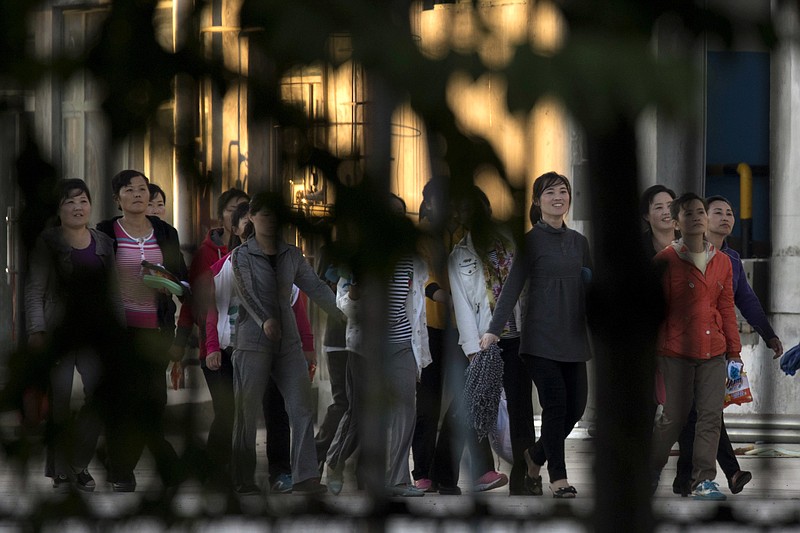U.S. Customs and Border Protection said it is ready to block U.S. imports of seafood - as well as any other goods - produced by North Korean laborers who work in China.
An Associated Press investigation tracked salmon, squid and cod processed by North Koreans working at Chinese factories and shipped to American stores, including Walmart and ALDI. The North Korean workers found in Chinese factories aren't allowed to leave, and receive only a fraction of their pay - most goes straight to the North Korean state. This means American consumers buying seafood labeled "Caught in the USA, Processed in China" may inadvertently be subsidizing the government of Kim Jong Un as it builds nuclear weapons and also supporting forced labor.
U.S. Customs and Border Protection said it is reviewing the allegations and if warranted, would "pursue all enforcement actions and prohibit goods from importation as appropriate." The companies that responded also vowed to investigate ties with suppliers.
At this point, anything made by North Korean workers anywhere is presumed to be made with forced labor, the State Department said in a statement Friday.
"North Koreans sent overseas do not have a choice in the work; the government ultimately assigns them and they are not free to change jobs," said the statement, noting wages and passports are typically withheld by North Korean supervisors.
GOP Congressman Chris Smith from New Jersey, who has repeatedly called for tougher enforcement, said the Labor Department has already identified trafficking in 12 sectors of goods exported by China.
"CBP should be stopping every shipment from those sectors - and now trafficking-tainted salmon, too," he said.
A White House National Security Council spokesman said the North Korean government's scheme to outsource its labor underscores why the United States has pushed for restrictions on North Korean foreign workers. The spokesman said all countries should, at a minimum, ban companies from bringing in North Korean crews, as pledged in recent United Nations sanctions.
China is among the countries that have promised to comply, already banning imports of North Korean seafood, and saying no more North Korean workers will be allowed starting next year.
"But all nations must go further and reject what is clearly a despicable practice that only serves the regime's nuclear ambitions," said the NSC spokesman, who spoke on condition of anonymity because he wasn't authorized to comment.
Walmart said its supplier has addressed the problem, although it did not specify how. Walmart and ALDI said they are committed to human rights and fair labor practices, and expect the same from their business partners.

